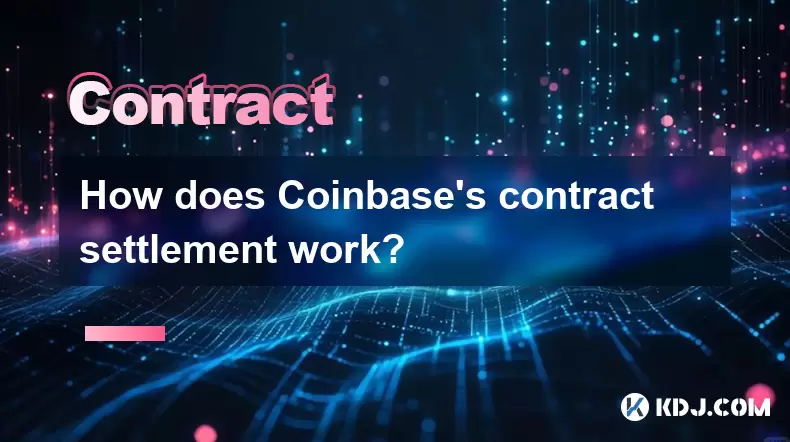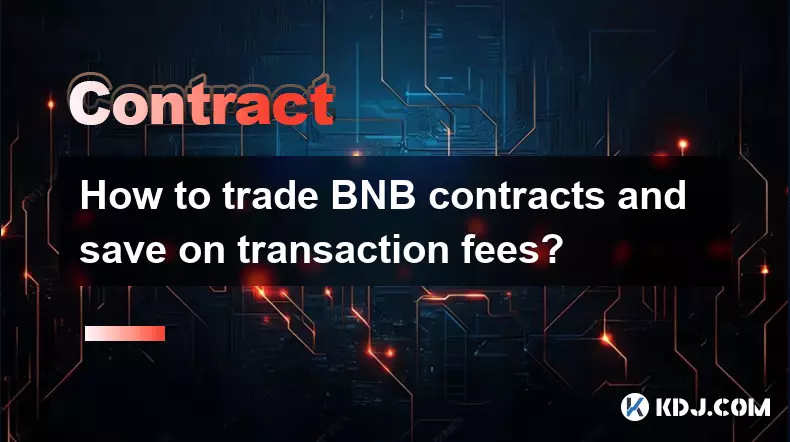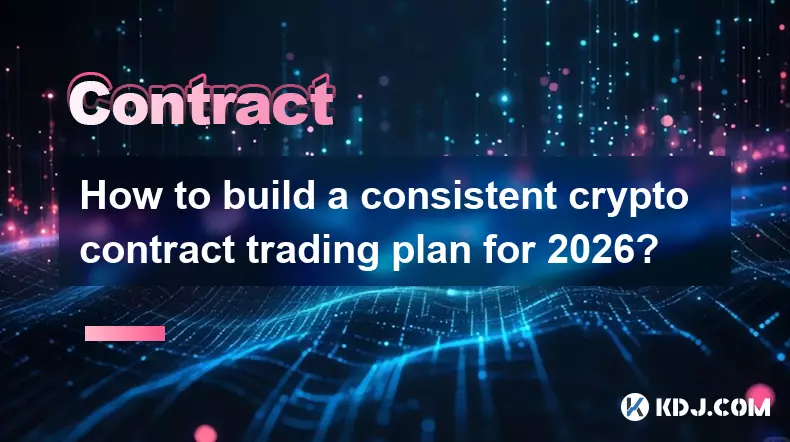-
 bitcoin
bitcoin $87959.907984 USD
1.34% -
 ethereum
ethereum $2920.497338 USD
3.04% -
 tether
tether $0.999775 USD
0.00% -
 xrp
xrp $2.237324 USD
8.12% -
 bnb
bnb $860.243768 USD
0.90% -
 solana
solana $138.089498 USD
5.43% -
 usd-coin
usd-coin $0.999807 USD
0.01% -
 tron
tron $0.272801 USD
-1.53% -
 dogecoin
dogecoin $0.150904 USD
2.96% -
 cardano
cardano $0.421635 USD
1.97% -
 hyperliquid
hyperliquid $32.152445 USD
2.23% -
 bitcoin-cash
bitcoin-cash $533.301069 USD
-1.94% -
 chainlink
chainlink $12.953417 USD
2.68% -
 unus-sed-leo
unus-sed-leo $9.535951 USD
0.73% -
 zcash
zcash $521.483386 USD
-2.87%
How does Coinbase's contract settlement work?
Contract settlement on Coinbase closes futures positions, calculates profit/loss, and updates your margin balance automatically—no manual action needed at expiry. (154 characters)
Jul 29, 2025 at 11:21 pm

What Is Contract Settlement on Coinbase?
Contract settlement on Coinbase refers to the process where a futures or perpetual contract position is closed, and the resulting profit or loss is calculated and credited or debited from a user’s margin balance. This mechanism is essential for traders engaging in derivatives markets on Coinbase’s advanced trading platforms, such as Coinbase Advanced Trade. Unlike spot trading, where assets are exchanged immediately, contract settlement involves time-bound agreements based on price movements of the underlying asset—like Bitcoin or Ethereum—over a specified period.
When a contract reaches its expiration or when a trader manually closes a position, the system executes the settlement logic automatically. This ensures that both parties involved—the long (buyer) and short (seller)—receive their due settlements without manual intervention. Settlement can happen in two ways: cash-settled or physically delivered, depending on the contract type. Coinbase primarily uses cash-settled contracts, meaning no actual cryptocurrency changes hands—only the monetary difference is transferred.
How Does Cash Settlement Work?
Cash settlement is the default mechanism for most futures contracts on Coinbase. Instead of delivering the actual crypto asset, the platform calculates the difference between the entry price and the exit (or settlement) price in USD or another stablecoin like USDC.
- The trader’s realized P&L (Profit and Loss) is computed using the formula:
P&L = (Exit Price - Entry Price) × Position Size - If the result is positive, the trader earns a profit, which is added to their margin balance.
- If negative, the loss is deducted from the same balance.
- All calculations happen in real-time upon position closure or at contract expiry.
This process avoids the need for users to hold or transfer actual crypto assets at settlement. It also reduces friction for retail traders who may not want custody responsibilities for the underlying asset post-trade.
Step-by-Step: Closing a Futures Position
To manually settle a contract on Coinbase Advanced Trade, follow these steps:
- Navigate to the 'Futures' tab in your Coinbase Advanced Trade interface.
- Locate the open position you wish to close under the “Open Positions” section.
- Click the “Close” button next to the position—this triggers a market or limit order depending on your preference.
- Confirm the order details, including the expected P&L shown in real-time.
- Once the order fills, the position is closed, and the settlement is processed instantly.
- Check your margin balance in the “Portfolio” section to see the updated equity reflecting the settlement.
This procedure applies whether you're long or short. The system ensures that your margin account reflects gains or losses immediately after execution, enabling seamless reinvestment or withdrawal of funds.
Automatic Settlement at Expiry
For time-bound futures contracts (e.g., quarterly BTC-USD futures), Coinbase automatically settles positions at the contract’s expiration. No action is required from the user.
- Before expiry, Coinbase publishes the final settlement price, usually derived from a volume-weighted average price (VWAP) over a specific window (e.g., the last hour of trading).
- At the exact expiry time, all open positions are closed using this final price.
- The system then calculates each user’s P&L based on this official price and updates their margin balance accordingly.
- Any remaining margin, including profits, becomes available for new trades or withdrawal.
This automated process prevents slippage and ensures fairness by using a transparent, pre-defined pricing mechanism. Traders can view the upcoming expiry dates and settlement rules in the contract specifications on the trading page.
Risks and Margin Implications
Settlement impacts your margin balance directly. If a position settles at a loss:
- Your available margin decreases, potentially triggering a margin call if it falls below maintenance levels.
- In extreme cases, liquidation may occur if the loss depletes your margin entirely.
Conversely, profitable settlements increase your margin, allowing for larger future positions. Monitoring your leverage ratio and liquidation price before and during settlement is crucial. Coinbase displays these metrics in real-time on the futures trading interface, enabling proactive risk management.
Frequently Asked Questions
Can I withdraw funds immediately after a contract settles?Yes. Once a contract settles—whether manually closed or expired—the resulting funds (profit or remaining margin) are immediately available in your margin balance. You can transfer them to your spot wallet or initiate a withdrawal to an external address without delay.
What happens if I don’t close a futures contract before expiry?Coinbase automatically closes all open positions at the official settlement price. You do not need to act. The platform will credit or debit your margin balance based on the final price, and the position will disappear from your open positions list.
Are settlement fees charged on Coinbase futures?No. Coinbase does not charge separate settlement fees. Trading fees apply when you open or close a position (maker or taker fees), but there is no additional cost for the settlement process itself, whether automatic or manual.
How is the final settlement price determined for expiring contracts?The final price is typically a volume-weighted average price (VWAP) of the underlying asset (e.g., BTC/USD) over a predefined period—usually the last 60 minutes before expiry. This data is publicly verifiable and published in the contract specifications on Coinbase’s platform.
Disclaimer:info@kdj.com
The information provided is not trading advice. kdj.com does not assume any responsibility for any investments made based on the information provided in this article. Cryptocurrencies are highly volatile and it is highly recommended that you invest with caution after thorough research!
If you believe that the content used on this website infringes your copyright, please contact us immediately (info@kdj.com) and we will delete it promptly.
- WisdomTree Eyes Crypto Profitability as Traditional Finance Embraces On-Chain Innovation
- 2026-02-04 10:20:01
- Big Apple Bit: Bitcoin's Rebound Hides a Deeper Dive, Say Wave 3 Watchers
- 2026-02-04 07:00:03
- DeFi Vaults Poised for 2026 Boom: Infrastructure Matures, Yield Optimization and Liquidity Preferences Shape the Future
- 2026-02-04 06:50:01
- Royal Canadian Mint Unveils 'Gold Dime' with Astounding High Value, Captivating Collectors
- 2026-02-04 06:55:01
- Datavault AI Dives into Digital Collectibles with Dream Bowl Meme Coin II, Navigating the Wild West of Web3
- 2026-02-04 06:30:02
- New VistaShares ETF Merges Bitcoin and Treasuries for Enhanced Income
- 2026-02-04 06:55:01
Related knowledge

How to close a crypto contract position manually or automatically?
Feb 01,2026 at 11:19pm
Manual Position Closure Process1. Log into the trading platform where the contract is active and navigate to the 'Positions' or 'Open Orders' tab. 2. ...

How to understand the impact of Bitcoin ETFs on crypto contracts?
Feb 01,2026 at 04:19pm
Bitcoin ETFs and Market Liquidity1. Bitcoin ETFs introduce institutional capital directly into the spot market, increasing order book depth and reduci...

How to trade DeFi contracts during the current liquidity surge?
Feb 01,2026 at 07:00am
Understanding Liquidity Dynamics in DeFi Protocols1. Liquidity surges in DeFi are often triggered by coordinated capital inflows from yield farming in...

How to use social trading to copy crypto contract experts?
Feb 02,2026 at 07:40am
Understanding Social Trading Platforms1. Social trading platforms integrate real-time market data with user interaction features, enabling traders to ...

How to trade BNB contracts and save on transaction fees?
Feb 03,2026 at 12:39am
Understanding BNB Contract Trading Mechanics1. BNB contracts are derivative instruments traded on Binance Futures, allowing users to gain leveraged ex...

How to build a consistent crypto contract trading plan for 2026?
Feb 02,2026 at 10:59pm
Defining Contract Specifications1. Selecting the underlying asset requires evaluating liquidity depth, historical volatility, and exchange support acr...

How to close a crypto contract position manually or automatically?
Feb 01,2026 at 11:19pm
Manual Position Closure Process1. Log into the trading platform where the contract is active and navigate to the 'Positions' or 'Open Orders' tab. 2. ...

How to understand the impact of Bitcoin ETFs on crypto contracts?
Feb 01,2026 at 04:19pm
Bitcoin ETFs and Market Liquidity1. Bitcoin ETFs introduce institutional capital directly into the spot market, increasing order book depth and reduci...

How to trade DeFi contracts during the current liquidity surge?
Feb 01,2026 at 07:00am
Understanding Liquidity Dynamics in DeFi Protocols1. Liquidity surges in DeFi are often triggered by coordinated capital inflows from yield farming in...

How to use social trading to copy crypto contract experts?
Feb 02,2026 at 07:40am
Understanding Social Trading Platforms1. Social trading platforms integrate real-time market data with user interaction features, enabling traders to ...

How to trade BNB contracts and save on transaction fees?
Feb 03,2026 at 12:39am
Understanding BNB Contract Trading Mechanics1. BNB contracts are derivative instruments traded on Binance Futures, allowing users to gain leveraged ex...

How to build a consistent crypto contract trading plan for 2026?
Feb 02,2026 at 10:59pm
Defining Contract Specifications1. Selecting the underlying asset requires evaluating liquidity depth, historical volatility, and exchange support acr...
See all articles





















![[FULL STORY] My grandfather left me his [FULL STORY] My grandfather left me his](/uploads/2026/02/03/cryptocurrencies-news/videos/origin_6981f669e270a_image_500_375.webp)




















































